Picture this. You’ve just returned home from a long business trip, and you can’t wait to watch Stranger Things with your significant other. You both sit down on the couch with a fresh bowl of popcorn and turn on Netflix.
But wait, what’s this? Netflix shows that you’re on episode seven, but you and your partner only got to episode four before you left for your trip. You turn to your partner as the realization hits: they “TV cheated” on you.
Before you send the demagorgans after your partner, just know that you’re not alone. We asked more than 600 adults about their TV viewing habits to see just how many people “TV cheat” by watching ahead of their partner. Here’s what we found:
- 52 percent of people in a relationship have “TV cheated” on their partner
- One-in-three people plan to “TV cheat” in the future
- 53 percent of “TV cheaters” are female and 47 percent are male
- Game of Thrones is the show that people have “TV cheated” on the most
- 51 percent of “TV cheaters” would be mad if their watching partner “TV cheated” on them
Are you being “TV cheated” on?
Whether it’s with a partner, friend or family member, most of us have shows that we’ve agreed to only watch with someone else. So how often do we break the sacred bond of watching new episodes with our TV partner? It turns out the answer is pretty darn often.
Fifty-three percent of people who wait to watch new episodes of a show with someone else have “TV cheated” and watched ahead. The number is pretty similar when you narrow it down to romantic partners, with 52 percent of partners “TV cheating.”
If you watch a TV show with a family member, you’re the most likely to get “TV cheated” on. Out of all the people who watch with a family member, 57 percent have “TV cheated.” For those who watch shows with a friend, 52 percent of friends have “TV cheated.”
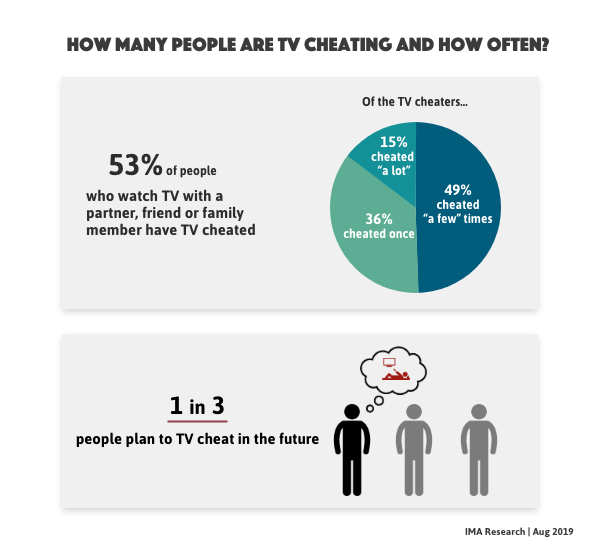
If your TV partner has “TV cheated,” it’s likely that they’ll cheat again. Out of all the people who have “TV cheated,” 64 percent have cheated more than once. However, only one-in-three people plan to “TV cheat” in the future, while more than half of people admitted to cheating in the past.
It looks like a lot of people don’t intend to “TV cheat,” but it ends up happening anyway. We get it, when Netflix automatically starts playing the next episode, it’s hard to say no. Or maybe only one-in-three people plan to “TV cheat” because we’re working on self-improvement. Who knows. Of those who plan to “TV cheat” on someone in the future, 73 percent plan to “TV cheat” on a romantic partner. You better watch your Netflix viewing history like a hawk.
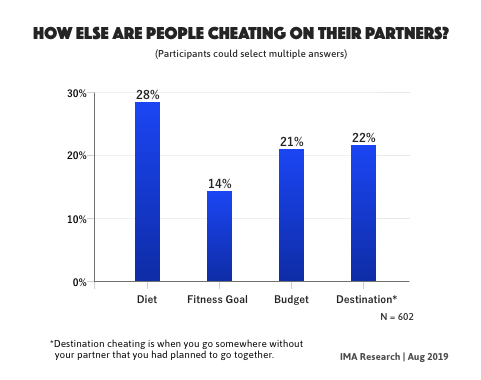
While the majority of us are getting “TV cheating” on, you can rest easy knowing that other forms of cheating are a lot less common. The next most prevalent form of cheating is cheating on a diet that you have with someone else.
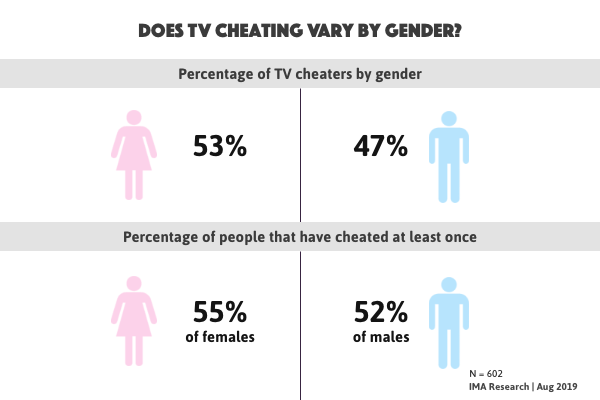
When it comes to watching ahead of our partners, women are the worst offenders. Women are responsible for 53 percent of all “TV cheating,” while men make up the other 47 percent.
Just how unforgivable is “TV cheating”?
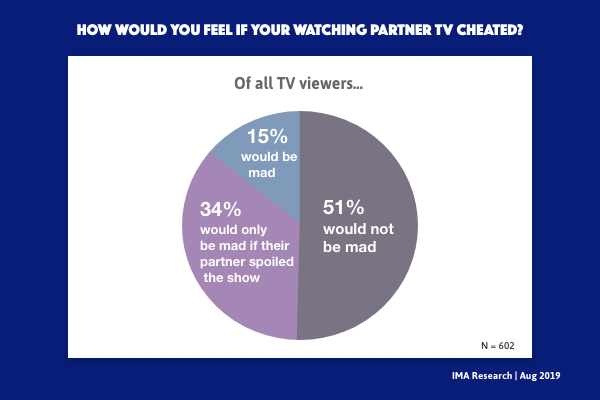
InMyArea Research found that about half of all people wouldn’t be upset if their watching partner “TV cheated.” Just 15 percent of people would be mad if their partner “TV cheated,” regardless of whether or not they spoiled the show. One in three people would only be mad if their watching partner spoiled the show. Moral of the story: don’t tell your partner what happened to Hopper on episode eight of Stranger Things and you should be good to go.
Surprisingly, 51 percent of the people who have "TV cheated" would still be mad if their watching partner "TV cheated" on them.
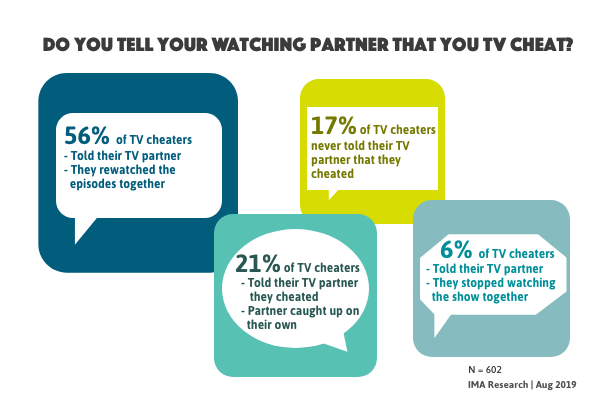
Our study found that most “TV cheaters” feel guilty enough to tell their watching partner that they cheated. Only 17 percent of “TV cheaters” never told their partner that they cheated.
We asked participants to compare “TV cheating” to other forms of cheating to find out just how bad “TV cheating” is. InMyArea Research found that 63 percent of people think that cheating on a test is a lot worse than “TV cheating.” When it comes to cheating on a diet or fitness goal, around half of participants felt that it was about the same as “TV cheating.”
It’s not just Netflix, “TV cheating” can happen anywhere
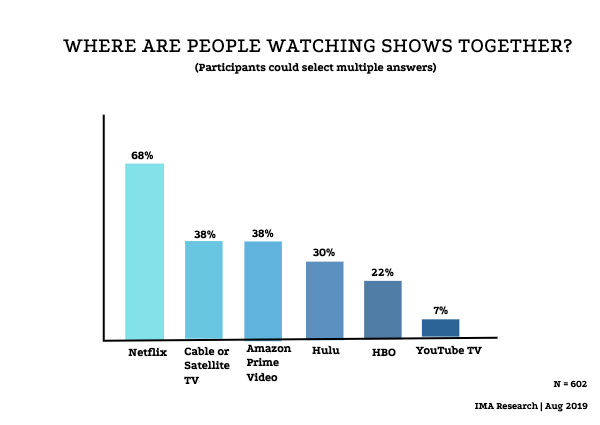
While the majority of people are watching shows with other people on Netflix, people also frequently watch shows together on other streaming platforms and cable TV. That leaves plenty of places for your watching partner to “TV cheat,” so keep an eye on that remote. Our study found that the three shows people “TV cheat” on the most are Game of Thrones, Stranger Things, and Friends.


